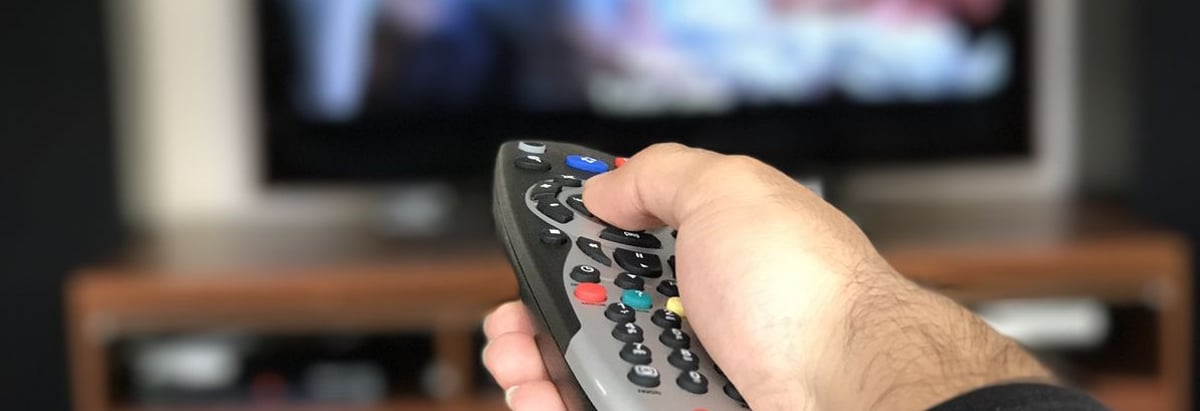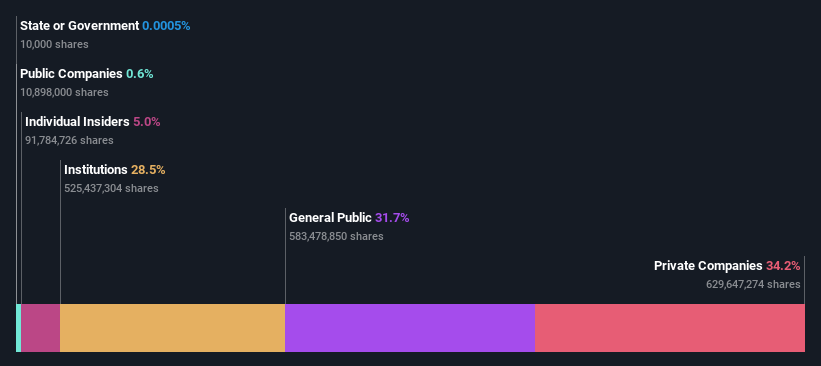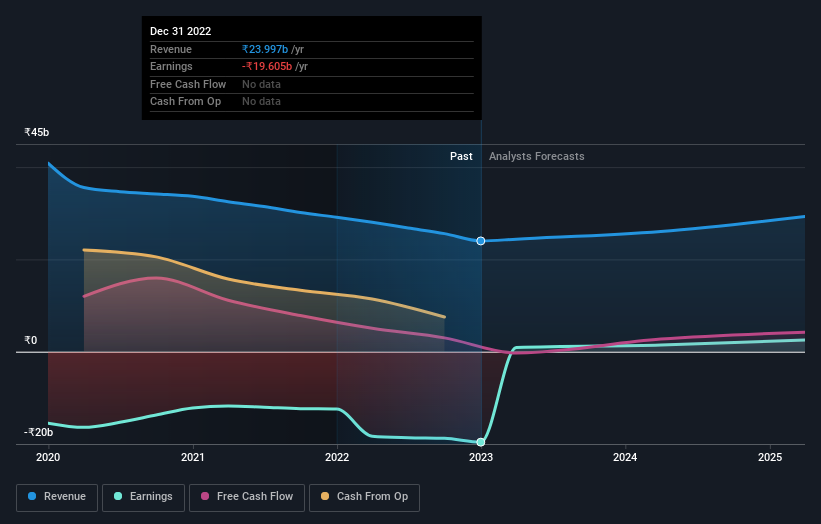Dish TV India Limited's (NSE:DISHTV) stock price dropped 10% last week; private companies would not be happy

Key Insights
- Dish TV India's significant private companies ownership suggests that the key decisions are influenced by shareholders from the larger public
- 50% of the business is held by the top 10 shareholders
- Institutional ownership in Dish TV India is 29%
To get a sense of who is truly in control of Dish TV India Limited (NSE:DISHTV), it is important to understand the ownership structure of the business. With 34% stake, private companies possess the maximum shares in the company. In other words, the group stands to gain the most (or lose the most) from their investment into the company.
And last week, private companies endured the biggest losses as the stock fell by 10%.
Let's delve deeper into each type of owner of Dish TV India, beginning with the chart below.
Check out our latest analysis for Dish TV India

What Does The Institutional Ownership Tell Us About Dish TV India?
Institutional investors commonly compare their own returns to the returns of a commonly followed index. So they generally do consider buying larger companies that are included in the relevant benchmark index.
As you can see, institutional investors have a fair amount of stake in Dish TV India. This implies the analysts working for those institutions have looked at the stock and they like it. But just like anyone else, they could be wrong. If multiple institutions change their view on a stock at the same time, you could see the share price drop fast. It's therefore worth looking at Dish TV India's earnings history below. Of course, the future is what really matters.

Dish TV India is not owned by hedge funds. Ambit Flowers Asset Reconstruction Co. Private Limited is currently the company's largest shareholder with 24% of shares outstanding. Deutsche Bank Aktiengesellschaft, London is the second largest shareholder owning 6.0% of common stock, and Blue Diamond Properties Pvt Ltd holds about 4.6% of the company stock.
On further inspection, we found that more than half the company's shares are owned by the top 10 shareholders, suggesting that the interests of the larger shareholders are balanced out to an extent by the smaller ones.
Researching institutional ownership is a good way to gauge and filter a stock's expected performance. The same can be achieved by studying analyst sentiments. There is a little analyst coverage of the stock, but not much. So there is room for it to gain more coverage.
Insider Ownership Of Dish TV India
The definition of company insiders can be subjective and does vary between jurisdictions. Our data reflects individual insiders, capturing board members at the very least. Company management run the business, but the CEO will answer to the board, even if he or she is a member of it.
Insider ownership is positive when it signals leadership are thinking like the true owners of the company. However, high insider ownership can also give immense power to a small group within the company. This can be negative in some circumstances.
We can report that insiders do own shares in Dish TV India Limited. It has a market capitalization of just ₹27b, and insiders have ₹1.3b worth of shares, in their own names. This shows at least some alignment. You can click here to see if those insiders have been buying or selling.
General Public Ownership
The general public, who are usually individual investors, hold a 32% stake in Dish TV India. While this group can't necessarily call the shots, it can certainly have a real influence on how the company is run.
Private Company Ownership
We can see that Private Companies own 34%, of the shares on issue. It might be worth looking deeper into this. If related parties, such as insiders, have an interest in one of these private companies, that should be disclosed in the annual report. Private companies may also have a strategic interest in the company.
Next Steps:
It's always worth thinking about the different groups who own shares in a company. But to understand Dish TV India better, we need to consider many other factors. Consider for instance, the ever-present spectre of investment risk. We've identified 1 warning sign with Dish TV India , and understanding them should be part of your investment process.
If you are like me, you may want to think about whether this company will grow or shrink. Luckily, you can check this free report showing analyst forecasts for its future.
NB: Figures in this article are calculated using data from the last twelve months, which refer to the 12-month period ending on the last date of the month the financial statement is dated. This may not be consistent with full year annual report figures.
New: Manage All Your Stock Portfolios in One Place
We've created the ultimate portfolio companion for stock investors, and it's free.
• Connect an unlimited number of Portfolios and see your total in one currency
• Be alerted to new Warning Signs or Risks via email or mobile
• Track the Fair Value of your stocks
Have feedback on this article? Concerned about the content? Get in touch with us directly. Alternatively, email editorial-team (at) simplywallst.com.
This article by Simply Wall St is general in nature. We provide commentary based on historical data and analyst forecasts only using an unbiased methodology and our articles are not intended to be financial advice. It does not constitute a recommendation to buy or sell any stock, and does not take account of your objectives, or your financial situation. We aim to bring you long-term focused analysis driven by fundamental data. Note that our analysis may not factor in the latest price-sensitive company announcements or qualitative material. Simply Wall St has no position in any stocks mentioned.
About NSEI:DISHTV
Dish TV India
Provides direct to home (DTH) and teleport services in India.
Reasonable growth potential and fair value.
Similar Companies
Market Insights
Community Narratives




